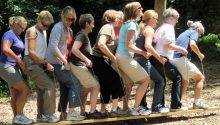
Did you know that staying up late every night could be slowing your work performance? One researcher found that people who get 5 hours of sleep every night – or less – have the equivalent of 0.1 blood alcohol level. Now this is interesting because the legal limit for driving is actually 0.08, and these people are at 0.10.
Millions of people are walking around wasted all day. We constantly hear about the importance of sleep and how it affects our health but somehow we miss the practical implications of sleep deprivation. This article looks at how lack of sleep affects your productivity and efficiency at work.
Effects On Productivity From Sleep Deprivation
- Slowed learning
A study involving middle-schoolers found that delaying school start times by an hour had the effect of boosting test scores by more than 2% in math and more than 1% in reading. A lot of creative people understand this – and you’ll find writers, artists, and even some highly successful business people who like to sleep in and usually get more work done between 10 a.m. and 5 p.m.
- You’re likely to make mistakes
Another study found that surgeons who failed to get enough sleep made a lot more mistakes (a 30% increase) than those who got at least 7 hours of sleep. A different study showed how athletes, especially those involved in super-focused games like shooting, made more mistakes if they had one sleepless night. But many of us already know this from experience; during those day’s when you’re just not on top of your game.
- You’re more likely to be distracted
Any task that requires your full attention is affected by a lack of sleep (and this is hardly surprising). If you’ve struggled recently to keep your eyes open when working then you’ll know about that feeling of floating, where you’re not really asleep but you’re not fully awake either.
- Headaches
Science hasn’t yet made the connection between lack of sleep and headaches, but we all know it exists. The number of studies that have been done on this cannot be listed here. Migraines are easily triggered by lack of sleep and its very hard to stay productive when your head just won’t stop pounding.
- Decision making is hindered
Apart from being less attentive, you’re also likely to take longer to decide on important issues, and this can be bad for your career. Decision making is at the heart of productivity and efficiency; and when we’re unable to draw conclusions about important things it ruins our confidence and leaves us more inclined to make a mistake.
How much sleep do you need?
Most of the articles you read online talk about 8 hours as the magic number for sleep, but there’s not enough evidence to back this up. As a matter of fact, there are studies that show that sleeping for 6.5 to 7.5 is the best, and 8 hours or more could be bad for your health.
In his book, The Power of Full Engagement, Tony Schwartz says that the we get the highest quality sleep when we’re fully drained both mentally and physically. The truth, however, is there’s no specific number; you will know when you’re fully rested – hint, it shouldn’t take more than 8 hours.
Common signs of sleep deprivation
- Feeling irritable and moody.
- Forgetting things you do every day, and taking forever to finish simple tasks.
- Falling into semi-sleep mode, or experiencing a lapse in attention.
How to avoid sleep deprivation
- While this may not work for everyone, studies have shown that even 15 minutes of nap time can boost productivity significantly. This is why some employers create those nap pods for workers to get a power nap during their break.
- Caffeine is great when you’re working but it messes with your sleep cycle when taken before bed. Don’t take caffeine for the last three hours before bed. If you did want to take something that could help you sleep, Mellow CBD has a special night-time formula that, among other benefits, can also promote a great night’s sleep.
- Sometimes sleep deprivation might be due to disorders like Sleep Apnea Syndrome, Narcolepsy, Restless Legs Syndrome, Insomnia, and more. Here it becomes necessary to treat the source, and specialists from Gwinnett Sleep and the likes are well placed to offer solutions tailored for different types of insomnia.
- Sleep in a comfortable bed and get those fluffy beddings that are known to improve quality of sleep. You can search online for a high-quality mattress, or look at this article from WebMD (https://www.webmd.com/sleep-disorders/features/best-mattress-good-nights-sleep).
- Find some herbal oils, or perhaps inhale some soothing aromas. Perhaps you could even find a sleep vape to help you if this is something you would be up for trying.
- Switch off all electronics before going to bed and don’t look at your smartphone in bed – the light from your screen will trigger your brain to stay awake.
For more information:
http://www.businessinsider.com/successful-people-who-wake-up-late-2015-7?IR=T#novelist-cynthia-ozick-lets-the-day-start-when-it-starts-7
www.thelancet.com/journals/lancet/article/PIIS0140-6736(98)00034-8/fulltext
https://www.ncbi.nlm.nih.gov/pmc/articles/PMC3564638/
https://www.ncbi.nlm.nih.gov/pubmed/12603650
http://content.time.com/time/health/article/0,8599,1812420,00.html



